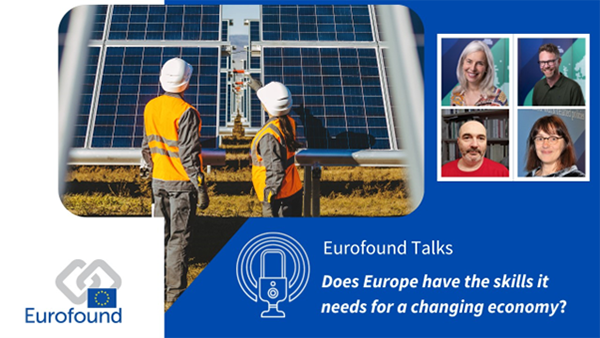
Work and workplaces in Europe are changing. Digitalisation, the transition towards climate neutrality, and demographic shifts are key forces behind this change. They drive increased demand in sectors and occupations already experiencing shortages such as health, care, STEM and ICT and create the need for a constant updating of skills profiles and training delivery.
These challenges are central focus points of the European Year of Skills. Eurofound has just published a new episode of the Eurofound Talks podcast on skills in Europe. In the episode Mary McCaughey speaks with Eurofound Research Manager Tina Weber, Eurofound Senior Research Manager Gijs van Houten, and Giovanni Russo, Senior Expert at CEDEFOP – the European Centre for the Development of Vocational Training.
Together they look at the links between skills shortages and labour shortages, how Europe’s climate goals could impact the skills landscape, how businesses are adapting get the best out of workers and develop their skills, where the onus is when it comes to upskilling, the role of job quality, and the actions that policymakers should take.
This episode of Eurofound Talks is published in advance of a joint event on 20 September in Brussels, and live streamed online , where five EU Agencies in collaboration with the European Parliament and the European Commission will explore skills needs in the EU. The half-day event will also provide a forum for policymakers, social partners and other relevant stakeholders to reflect on the challenges and opportunities involved in tackling the EU’s labour and skills shortages.
- Listen to the episode: Eurofound Talks - Does Europe have the skills it needs for a changing economy?
- More information on the joint skills event: Skills, skills, skills! Skills for people, skills for competitiveness, skills for sustainability